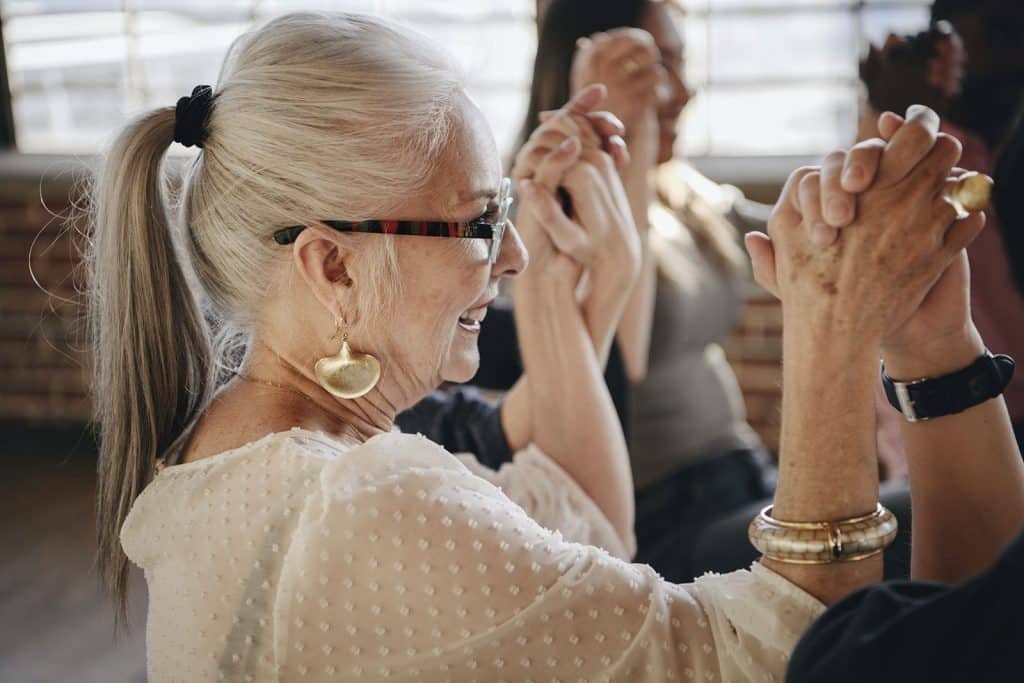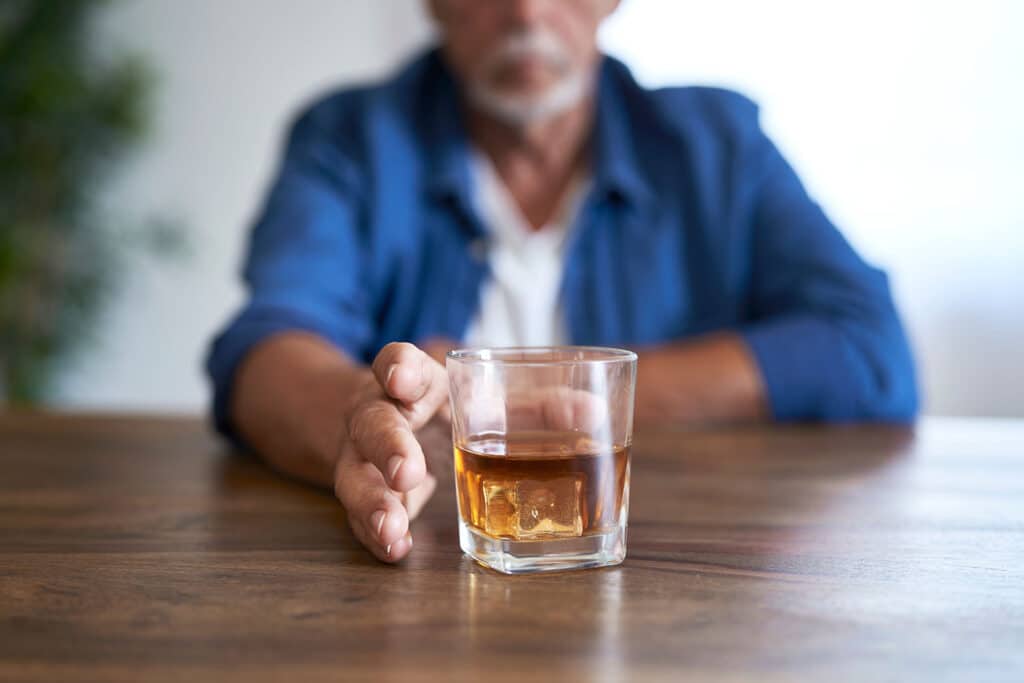Addiction can strike anyone regardless of age, gender, race, or background. There are over 43 million people in the United States over age 60, and this group is the fastest-growing demographic when it comes to drug and alcohol addictions. Since 2000, the number of seniors admitted to rehab for older adults has doubled from 3.5% to 7% of the total population. A 2020 National Institute for Health study indicated as many as 1 million seniors are struggling with addiction. If you or one of your loved ones are among that number, you might be wondering how this could happen.
Table of Contents
What Causes Substance Abuse for Seniors?
As with younger people, the actual causes of substance abuse are unknown. However, there are certain indicators that point to a combination of genetics, mental health, and an individual’s environment. Genetics can be a factor if there’s a family history of substance abuse. Some people are more genetically inclined to addiction than others, and a top senior recovery center will consider this when preparing a treatment plan.
Mental health issues are also a significant factor. A 2019 report from SAMHSA, or the Substance Abuse and Mental Health Services Administration, shows that over 1.7 million people over age 50 require a dual diagnosis for addiction and mental health issues. Some experts have suggested that aging can lead to physiological changes in the brain, and positive proof exists that seniors metabolize drugs and alcohol more slowly than younger people.

The two largest mental health issues associated with senior addiction are depression and anxiety. Sometimes, these can appear in their clinical forms without any accompanying factors. More likely, however, these come as a direct result of other issues. Depression can be caused by grief and loneliness, which are unfortunately a common part of old age.
Grief comes as a result of a loss. Many seniors are widows or widowers, and many others have lost siblings, good friends, or younger relatives. Although this is hardly limited to seniors, older people are likely to resort to heavy drinking and drug use to try to cope with grief.
On top of this, loneliness can come from having limited access to the loved ones that are left. Many seniors live alone with little opportunity to socialize with friends and family. Sometimes, relations can be hundreds or even thousands of miles away, making visits a rare occurrence. Other times, seniors may be living in nursing homes or assisted living facilities, which can put time limits on how many people can visit or for how long. This can lead to excessive substance usage for coping.
Substance abuse in a person’s youth can lead to addiction in old age. Some medical studies have shown that prolonged substance abuse between the ages of 18 and 35 can accelerate the age-related decline of a person’s temporal lobes. Since this section of the brain has significant control over a person’s senses and emotions, an accelerated decline can make older people more susceptible to negative consequences from drug use.
Other types of life changes can be a factor. Retirement can lead to boredom, so some seniors look to substance abuse to get the edge off. Financial difficulties and physical health changes are common enough in seniors, but it’s not always easy to adapt to them. Neither is a sudden change in living arrangements like moving into an assisted care facility. With so much anxiety, seniors may turn to drugs and alcohol for comfort.
Finally, one of the most common factors in senior drug addiction is the use of certain prescription drugs. As many as 80% of seniors have to take a minimum of one prescription medication daily. Some seniors have to take five or more as the body deteriorates due to aging. Some of the most common drugs include painkillers and anti-inflammatory medicines. Sadly, some people become dependent on these medications, which leads to addiction and misuse.

What Are the Signs of Drug or Alcohol Addiction or Misuse?
Signs of misuse of drugs can include:
- Blackouts
- Body tremors
- Trouble concentrating on things
- Increased irritability without reason
- Sudden depression and/or anxiety
- Trouble sleeping
- Slurred speech
As for addiction, a key sign is that you or a loved one are still using the substance even after you know that it’s worsening or even causing a physical or mental health condition. You may have stopped some of your favorite activities due to drug use. You may need to use more of the substance to feel the effects you want. You may have strong cravings for the drug, and you may be unable to stop despite wanting to stop with all your heart.
You may be unable to even reduce usage despite that usage worsening your personal relationships. You may be struggling to maintain your household responsibilities or continue to misuse them in dangerous situations. Finally, you may be spending excessive amounts of time looking for the substance or recovering from its effects.
What Does Drug Rehab for Seniors Entail?
If you are looking for drug rehab in Long Island, you should start by figuring out what option is right for you. Inpatient treatment will provide 24-hour supervision and comfort, while outpatient treatment will provide seniors with more freedom and flexibility. In either case, the first step will be detoxification.
Detox can be a very uncomfortable experience, and it can be outright dangerous for some seniors if not properly managed. A person going through detox will experience withdrawal symptoms that can be moderate to severe in intensity and last for days, depending on the substances used and the length of their use.
Withdrawal symptoms can include:
- Headaches
- Irritability
- Body tremors
- Nausea and vomiting
- Changes in heart rate and breathing
- Cognitive problems
These symptoms are harsh, and extra monitoring is required in seniors, but they are a necessary part of the recovery process. Once finished, psychotherapy can begin.
Drug rehab for seniors consists of similar methods used for younger people. Most seniors prefer to start with inpatient treatment, which requires the person to live at a treatment center for a period of time. You’ll go through one-on-one sessions with addiction specialists to figure out what caused your addiction and how to overcome it. You’ll also experience group therapy sessions that can bring a sense of togetherness and mutual accountability as you all help each other out. A senior recovery center will have exclusively senior group therapy sessions. Many rehab centers will also try to include loved ones in the therapy process.
The next step is outpatient treatment, which is advised only after inpatient care. Some seniors, however, prefer to start with outpatient care because they need to feel more comfortable with their surroundings to get the best results. Outpatient care can help people learn important skills to avoid triggering relapses and recognize emotional or mental triggers that lead to addiction. It can also help seniors find new coping mechanisms and ways to alleviate loneliness.
Anyone in outpatient treatment will still be required to attend therapy sessions. The duration of these sessions is usually between five and eight hours a day for as many as five days each week.

We Can Provide The Care You Need
At Long Island Treatment Center, we provide both types of therapy because we know the unique challenges posed by rehab for older adults. We’ll do our best to get you or your loved one out of the grip of addiction and back to living their best life. Contact us today if you have a need for drug rehab in Long Island.

